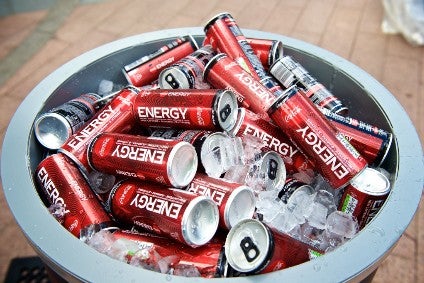
As the year draws to a close, just-drinks takes a look back at the stories that have made the headlines across the global drinks industry over the last 12 months. Here, Lucy Britner picks out the highs and lows for the soft drinks category.
While plastic reduction and increased recycling targets were the order of the day for just about every soft drinks producer in 2019, there have also been plenty of other hot topics across the category. From the rise of functionality and the maturation of the sugar tax to robot deliveries and tech to rival water fountains, this has certainly been a busy year for soft drinks.
Sugar tax matures
The year started with good news for the Soft Drinks Industry Levy in the UK, as the majority of the country’s consumers came out in favour of the tax on full-sugar soft drinks. While the concept might seem like old news for the drinks industry, the repercussions are changing both the products and consumption habits. Our spirits commentator, Richard Woodard, even suggested the spirits industry is well-placed to capitalise on the public’s cravings for less sugar.
Indeed, by the fourth quarter of the year, we were moved to consider whether full-sugar products could be the new niche.
Total beverage companies

US Tariffs are shifting - will you react or anticipate?
Don’t let policy changes catch you off guard. Stay proactive with real-time data and expert analysis.
By GlobalDataIn June, AG Barr, until then squarely located in the soft drinks arena, entered non-alcoholic spirits with the GBP1m (then-US$1.3m) purchase of a minority holding in Elegantly Spirited, the owner of zero-proof brand Stryyk. The Coca-Cola Co also moved beyond its traditional remit to explore the world of non-alcoholic cocktails with its Bar Nøne range.
Later in the year, Coca-Cola launched a range of premium mixers, aimed primarily at the on-premise channel. One of the group’s biggest launches in recent years, though, came in the form of Coca-Cola Energy. PepsiCo CEO Ramon Laguarta, however, warned that consumers may avoid energy drinks released under big-name soft drinks brands such as Coke and Pepsi.
In November, Molson Coors further proved its intentions to be an all-round beverage company – not just a brewer – with the acquisition of US soft drinks incubator LA Libations.
Functionality
As the health & wellness wave continues, there is a drink for pretty much every need state. Whether a consumer is a flexitarian, a coeliac or wants to improve their cognitive health, the industry has provided a solution.
Even big soda is on-board, with drinks such as Coca-Cola’s Nutriboost in Australia and PepsiCo’s incubator-backed Remedy Organics. PepsiCo also paid US-based Hormel Foods US$465m for its CytoSport sports nutrition business.
Elsewhere, Nestle’s CEO expressed concerns at the group’s performance in bottled water back in April, adding that the company was looking to expand into functional waters to boost its sales in the category.
We also spotted an opportunity for Asian flavours to capitalise on health & wellness.
Dispense and refill
2019 has been the year of dispense and refill. As governments around the world continue to clamp down on single-use plastics, soft drinks makers have been working hard to provide dispense and refill solutions, with both PepsiCo and Coca-Cola taking advantage of connected technology to bring the humble water fountain into the 21st Century.
Last month, PepsiCo ramped up its Drinkfinity range to include an all-in-one stainless steel bottle available in five colours. Three new flavour pods have also been launched, which unlike existing pods, contain caffeine. The company later added some of its best-known brands to the SodaStream platform, including Pepsi, 7UP and Mountain Dew.
Technology
Convenience and sustainability are driving the tech agenda and PepsiCo kicked off the year with its very own self-driving ‘Snackbot’. The US university campus trial saw students use an app to order and pay for drinks and snacks, which are delivered by the bot. Coca-Cola European Partners followed suit later in the year by using robots to hand out soft drinks at a UK theme park in a trial of autonomous delivery services.
CCEP also used data from its self-serve soda dispensers to launch a new zero-sugar Fanta flavour in the UK.
Then in August, Britvic secured a collaboration with Ireland-based Sixty to develop wearable hydration technology that monitors water levels. And, in the same month, an edible beverage container – called Ooho – took a step closer to UK shelves after a project backed by Lucozade Ribena Suntory secured government funding.
CBD everywhere
Some big names have flocked to CBD drinks in 2019, including Tanisha Robinson, who quit her role as chief disruption officer at Scottish craft brewer BrewDog to create her own CBD-infused drinks brand. W*nder (pronounced ‘wonder’) is a soda that contains vitamins and CBD to provide energy, focus and a “better life balance”. Product launches have largely focused on the wellness angle, with brands such as Weller’s CBD-infused Sparkling Water range.
In July, US soft drinks firm Jones Soda appeared set to launch CBD beverages after selling a stake to hemp group HeavenlyRx for US$9m.
But towards the end of the year, confusion around CBD in the US still seemed to reign as we urged the country’s Food & Drug Administration to help the nascent category by tightening the legal rules for hemp- and cannabis-related products.
Things were rosy for Constellation Brands in Canada, though, as the company’s cannabis partner, Canopy Growth, rounded off the year by unveiling its first THC and CBD beverage ranges.
New frontiers?
Looking to next year and Africa could hold the key to growth for big soft drinks companies.
Coca-Cola Co CEO James Quincey has high hopes, saying the continent will “increasingly influence the growth trajectory of our global businesses in just a few years”.
If Africa is set to be big for Coca-Cola, then you can bet it will be big for others, too.
just-drinks Review of the Year 2019 – December Management Briefing



